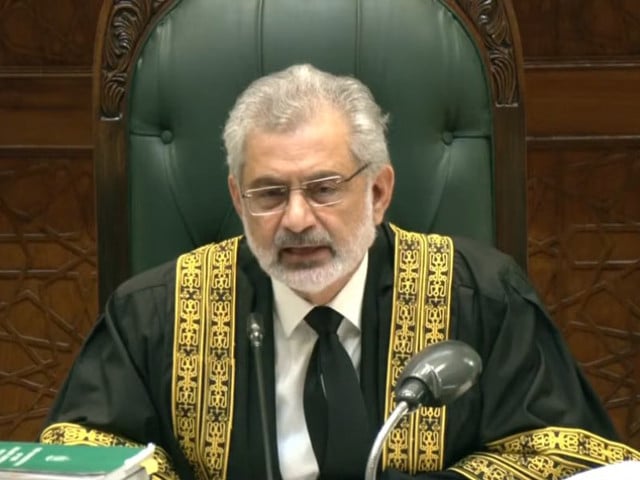
Despite hinting at forming a full court to hear suo motu notice pertaining to alleged meddling by the country’s security apparatus into judicial affairs, a three-judge committee constituted under the Supreme Court Practice and Procedure Act 2023 has constituted a six-member larger bench to hear the case.
The startling letter by six Islamabad High Court judges to the Supreme Judicial Council (SJC) had kicked off a flurry of activities.
Signed by Justices Mohsin Akhtar Kayani, Tariq Mehmood Jahangiri, Babar Sattar, Sardar Ejaz Ishaq Khan, Arbab Muhammad Tahir and Saman Rafat Imtiaz of the IHC, the March 25 letter was addressed to the chief justice of Pakistan, SC’s Justices Mansoor Ali Shah and Munib Akhtar, as well as the chief justices of the IHC and Peshawar High Court.
The Supreme Court on Thursday released its cause list according to which a new six-member larger bench, headed by CJP Qazi Faez Isa, would take up on April 30 the suo motu case of the six IHC judges penning a letter to the Supreme Judicial Council (SJC) alleging that the country’s intelligence agencies were interfering in their adjudication.
The other judges on the new bench include the same ones -- Justices Syed Mansoor Ali Shah, Jamal Khan Mandokhail, Athar Minallah, Musarrat Hilali, and Naeem Akhtar Afghan -- with Justice Yahya Afridi being the only exception.
Earlier on April 3, a seven-member larger bench led by the CJP had taken up the matter. However, Justice Yahya Afridi later recused himself from hearing the case.
The remaining six judges -- CJ Isa, Justice Syed Mansoor Ali Shah, Justice Jamal Khan Mandokhail, Justice Athar Minallah, Justice Musarrat Hilali, and Justice Naeem Akhtar Afghan -- are part of this bench. A copy of the court roster is available with The Express Tribune.
The roster has been issued by the order of the committee constituted under Section 2(1) of the SC Practice and Procedure Act.
Under the law, the committee comprises three judges, namely CJP Isa, Justice Syed Mansoor Ali Shah, and Justice Munib Akhtar.
Interestingly, the court roster has been issued from Karachi with the signature of SC Registrar Jazeela Aslam.
It is unclear as to whether the committee made the decision on the formation of the larger bench unanimously or with a majority.
When the case was fixed on April 3, it was mentioned in the cause list that all available judges were part of the larger bench.
Even during the first and sole hearing of the case, CJP Isa hinted that the full court could be formed. Interestingly, Justice Minallah, in his separate note, referred to the full court several times.
Lawyers, who are backing the six IHC judges’ stance, have been expressing their disappointment over the absence of a full court, urging the committee members to reconsider their decision.
It will be interesting to see if the bench will defuse the matter and give guidelines for the future.
The CJP has made it clear that he did not receive a single complaint of executive interference during his tenure.
On the other hand, PTI leaders have been complaining of manipulation of judicial proceedings in matters related to them, especially those pertaining to the party’s founding chairman Imran Khan.
Moreover, the PTI chief has already expressed mistrust of IHC Chief Justice Aamer Farooq.
In a repeat of history, PML-N leaders Nawaz Sharif and Maryam Nawaz were convicted just before the 2018 general elections while Imran Khan was handed down conviction before the 2024 general elections.
Like Nawaz Sharif and Maryam Nawaz’s conviction in the Panama cases, apprehensions were cast over the way Imran was convicted in three cases during trials that were run in Adiala Jail before the elections. There are serious questions for not following the due process during his trials in cases.
The superior judiciary led by CJ Isa has failed to end the perception that a political leader, whose relations with the powerful circles, are tense, is being awarded convictions. That was what happened in the Panamagate scandal and the same is happening with Imran Khan now.
All eyes are on the larger bench as to how it will secure the six IHC judges from any kind of harassment in the future. The chief justice himself is a victim of a witch-hunt after his decision in the Faizabad Dharna case. There are reports that one section within the government is considering a judicial reform package through a constitutional amendment.
The outcome of every important case will be judged through the lens of the proposed judicial reforms.

















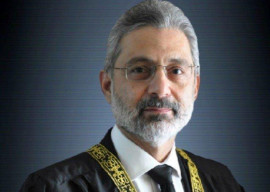

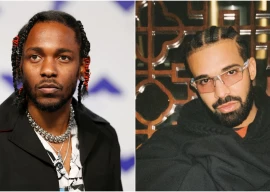
1714991880-0/BeFunky-collage-(5)1714991880-0-270x192.webp)














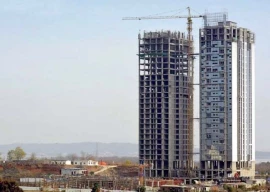
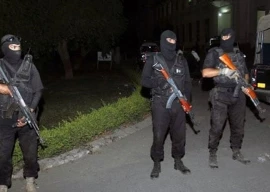

1714819959-0/Untitled-design-(21)1714819959-0-270x192.webp)
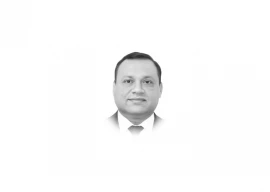





COMMENTS
Comments are moderated and generally will be posted if they are on-topic and not abusive.
For more information, please see our Comments FAQ